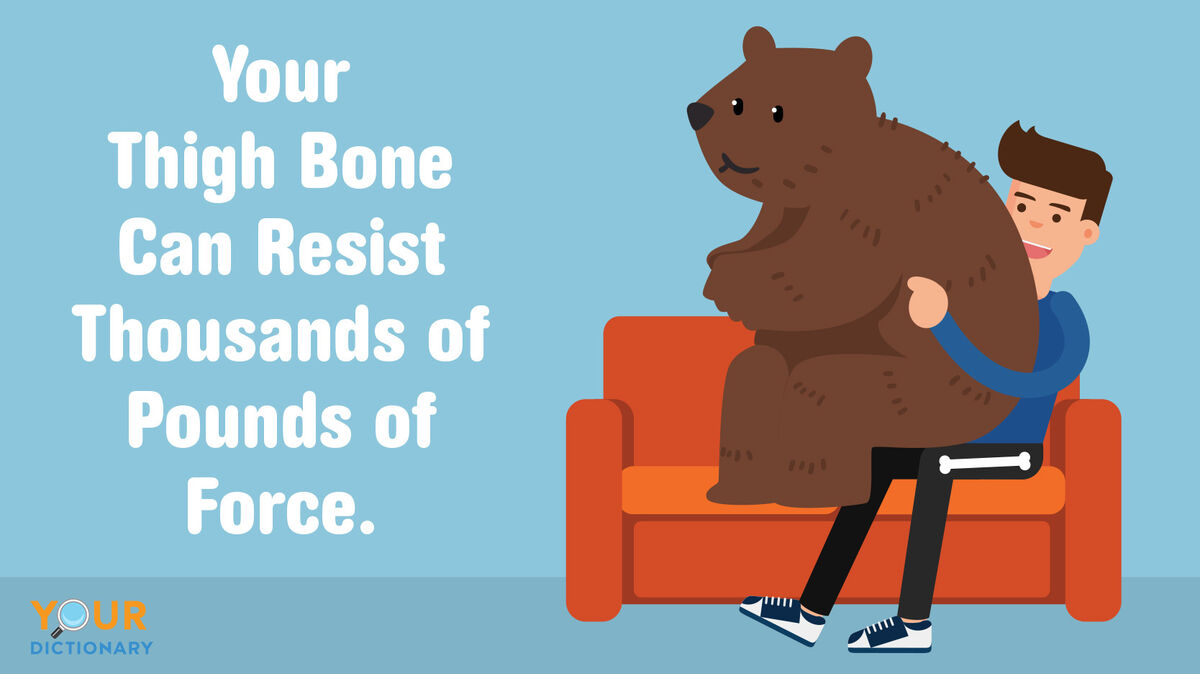
How much do you know about your own body? Chances are, it's much weirder — and grosser — than you can probably imagine. Take a look at these weird facts about the human body and how all these strange functions help to keep you alive every day.
Mystifying Mouth Facts
Whether you're breathing, eating or talking, you use your mouth constantly throughout the day. But how much do you know about the functions of your own mouth? Check out these crazy facts about your biggest cranial cavity.

A Lifetime of Saliva Can Fill Two Swimming Pools
Feel that spit swimming around your mouth? It's just a few drops of the 40,000 liters of saliva that you'll make in your lifetime. That's enough to fill up 500 bathtubs or two full swimming pools. In fact, you'll produce six cups of saliva by the end of today!
Your Mom Impacts the Bacteria in Your Mouth
At any given time, there are over 700 different species of bacteria living in your mouth, which scientists call "the human oral microbiome." The makeup of a baby's oral microbiome at birth is largely determined by the mother's oral health, as any oral conditions that she had (including gum disease) may create pathogens in the baby's mouth. However, the majority of this bacteria is good and helpful for oral health.
Your Jaw Can Put 200 Pounds of Force on Your Teeth
If you're one of the many people who clench or grind your teeth, you probably already know that your jaw can put a huge amount of pressure on your molars. But did you know that the masseter muscle, which is located in your jaw, can close your molars with over 200 pounds of force? That's why it's considered the strongest muscle in your body based on its weight.
Your Tongue Is Like an Elephant's Trunk
But wait — isn't the tongue the strongest muscle in the body? That's sort of true, except that your tongue is actually made of eight intertwined muscles. These muscles form a matrix called a muscular hydrostat, making the tongue's flexible functions similar to the trunk of an elephant or the tentacles of an octopus.
Every Body Part Can Repair Itself Except Teeth
You probably go to the dentist more often than you see a regular doctor for check-ups. That's because unlike every other part of your body, teeth can't repair themselves. Using fluoride in toothpaste or drinking water can help to repair enamel, but once a tooth begins to decay, it must be repaired with a dental filling.
Strange Facts to Make Your Skin Crawl
Your skin is your largest organ and the only one you can see. But how much do you know about that itchy, oily, sweaty, hairy surface? Learn the ins and outs of your integumentary system with these interesting facts.
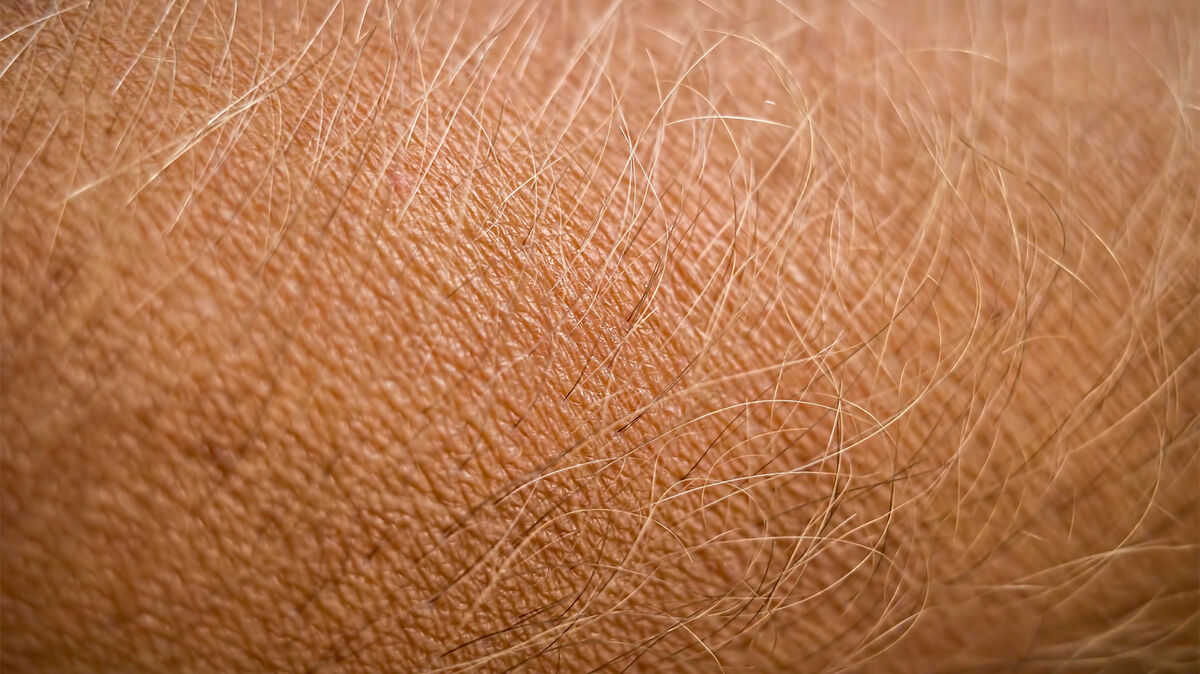
There Are Creatures All Over You
Ever feel like there's something crawling on your skin? You're right about that! At any given moment there are billions of creatures all over your skin, including viruses, pathogens and over 1000 species of bacteria. There are 50 million bacteria on just one square inch of your skin!
If you're grossed out, don't go bathe yourself with antibacterial soap just yet. Most of these little guys have symbiotic relationships with you. You need a balanced ecosystem of skin flora to keep you healthy, as skin infections can often lead to significant illnesses.
If You Took Your Skin Off, It Would Weigh 20 Pounds
Your skin makes up 15% of your total body weight. For an adult of average weight, that accounts for about 20 of the pounds you see on the scale. If you weigh over 195 pounds, your skin weighs closer to 30 pounds.
You Replace All Your Skin Every Month
Snakes and lizards shed their skin in a creepy, dramatic way. We shed our skin too, and while it's not as dramatic as our reptile friends, it's just as creepy! By the end of the day, you will have lost (and replaced) 50 million skin cells. Since you've started this article, you've lost about 40,000 of them. In 30 days, your outer layer of skin will have completely replaced itself.
Tattoos Live in Your Immune System
So if we lose all that skin, why do tattoos stay in place? The answer is that tattoo ink is not in your skin cells; it's in your immune system. White blood cells, known as macrophages, arrive at the tattoo site to repair the injury and remove the foreign body (tattoo ink). Macrophages can't break down this ink, so they "eat" it and stay in place to protect the skin.
When those macrophages die, other macrophages arrive to consume the released ink. That's why removing tattoos is extremely difficult. While lasers can kill the cells and ink-holding macrophages, more macrophages will arrive to repair the skin injury caused by the laser. They consume the ink released by the macrophages killed in the tattoo removal process, which is why a tattoo often looks faded after a few removal sessions. It's a great reminder to choose your next tattoo very carefully!
Body Odor Comes From Bacteria Eating Your Sweat
There's a good reason why you may smell a little stinkier after a hot day. Your sweat glands cool your skin down by releasing sweat. However, it's not the sweat that gives you B.O. (body odor) — it's the bacteria breaking down proteins and fatty acids in your sweat. Sweat itself is odorless. That's why a good shower with lots of soap is your best protection against body odor, rather than expensive perfumes and colognes that only mask the bacterial smell.
Stomach-Turning Facts About Digestion
Are you feeling nauseated yet? If so, these weird facts about your digestive system may make you feel a bit queasy as well. Keep reading to learn about your stupendous stomach (and all its juices!).
Stomach Acid Can Dissolve Metal
The acid in your stomach has a pH of 1-2, making it only slightly less acidic than battery acid (which has a pH of 0). It needs to be that acidic to break down fibrous foods and kill dangerous bacteria. Acid in your stomach is generally dilute, but it can dissolve metals such as copper or zinc, and can certainly burn your skin. That's why acid reflux causes such pain — the lining of your esophagus is being burned by stomach acid.
Your Stomach Lining Regenerates Itself Every 3-4 Days
So why doesn't your stomach hurt all the time with that dangerous acid splashing around? Mucus-producing cells line your stomach and protect it from acidic juices. They also secrete bicarbonate (a base found in many antacids) that neutralizes stomach acid. These cells are regenerated every few days to ensure that you have a fresh stomach lining and prevent damage.
Your Stomach Blushes When Your Cheeks Do
If you blush when you're embarrassed, your stomach does too! That's because the rush of adrenaline that brings blood to your cheeks also brings blood to your stomach. It's a function of the sympathetic nerve system designed to enable you to run away in dangerous situations. But our brains can't always tell the difference between an awkward moment and a life-threatening situation, so you get the same adrenaline dump either way!
Roller Coasters Move Your Digestive Organs Around
You're on the highest loop of the roller coaster and you feel your stomach flip-flop. Surely that's an illusion, right? Wrong — your internal organs do shift when your body experiences G-force after a rapid acceleration. They bump, float and bounce inside their physical cavity as your body speeds up and then slows back down. The next time you feel like your stomach's in your throat, you might not be far off!
When Your Stomach Growls, It's Full of Hot Air
That grumbly, growly feeling you get when you're hungry isn't just your imagination. But why does it growl when you've just eaten? It's usually the result of hot air moving through the digestive system. Air gets into your digestive system through the normal swallowing process, especially if you're drinking while breathing hard (such as in a workout) or if you're talking while eating. The growling could also come from your stomach cleaning up bits of food from your last meal.
Striking Facts About the Skeletal System
There's a skeleton inside of you right now! But don't be scared of this Halloween image. Your bones and joints help you move and function every day.
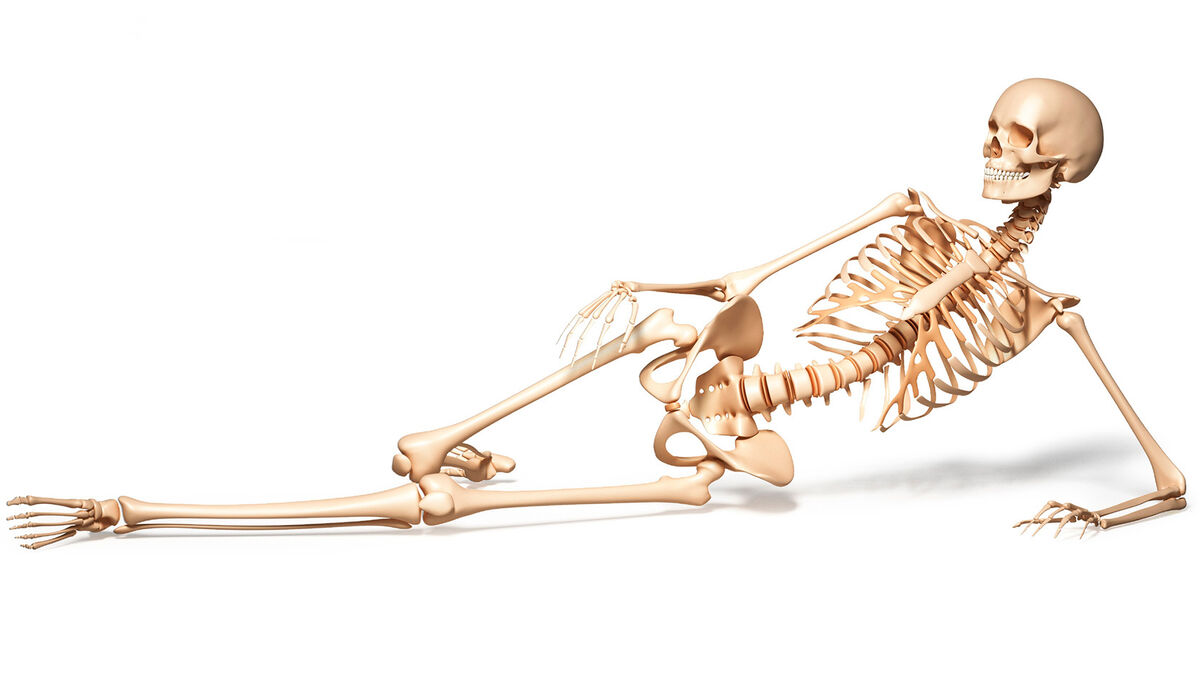
Babies Have 94 More Bones Than Adults
The adult human body has 206 bones, but it didn't start that way. You were born with around 300 bones. As you grow, many of those bones will fuse, including bones in your skull and arms and legs. Babies are missing a key bone, however: their kneecaps, which begin as soft cartilage and harden into the patella bone in early childhood.
Your Hands and Feet Contain Over Half of Your Total Bones
Of those 206 bones, you have 27 in each hand and 26 in each foot (106 total). That's 51% of all the bones in your body! There are also 26 bones in your spine (12% of your total bones) and 22 bones in your skull (10% of your total bones).
Your Funny Bone Is Neither Funny Nor a Bone
When you hit that sensitive spot on your elbow known as your funny bone, it sure doesn't feel funny. But you may not know that that spot isn't a bone at all. It's the area where the ulnar nerve rests against your upper arm bone (the humerus — which sounds like "humorous" and is probably why it's called the funny bone in the first place!). The nerve is only protected by skin and a thin layer of fat, so when it collides with something hard, it compresses against the bone and causes pain and tingling.
Your Thigh Bone Can Resist Thousands of Pounds of Force
Your femur bone, which is found in your upper leg, is not only the longest bone in your body. It can withstand thousands of pounds of force and is extremely difficult to break for that reason. In fact, femurs can support up to 30 times your body weight! Most femur fractures occur after severe automobile collisions or falls from high distances, which could possibly create enough force to break the bone.
Cracking Your Knuckles Pops Nitrogen Bubbles
Do your joints crackle and pop when you move your next or stretch your back? What about when you crack the knuckles in your hands? That's because nitrogen gas builds up in the synovial fluid in your joints. When you stretch or crack your joints, you're stretching the joint cavity and releasing that gas. That's why you can't crack the same joint immediately afterward — the gas needs to build up again. You also receive a burst of endorphins when you crack a joint, which makes those pops and crackles feel so satisfying.
Odd Facts About Old Traits
Modern humans are the result of millions of years of successful evolution. But there are some body parts and functions that haven't quite evolved out of our system yet. Keep reading to learn about "evolutionary leftovers" that served our ancestors well, but don't really have a place in our current lives.
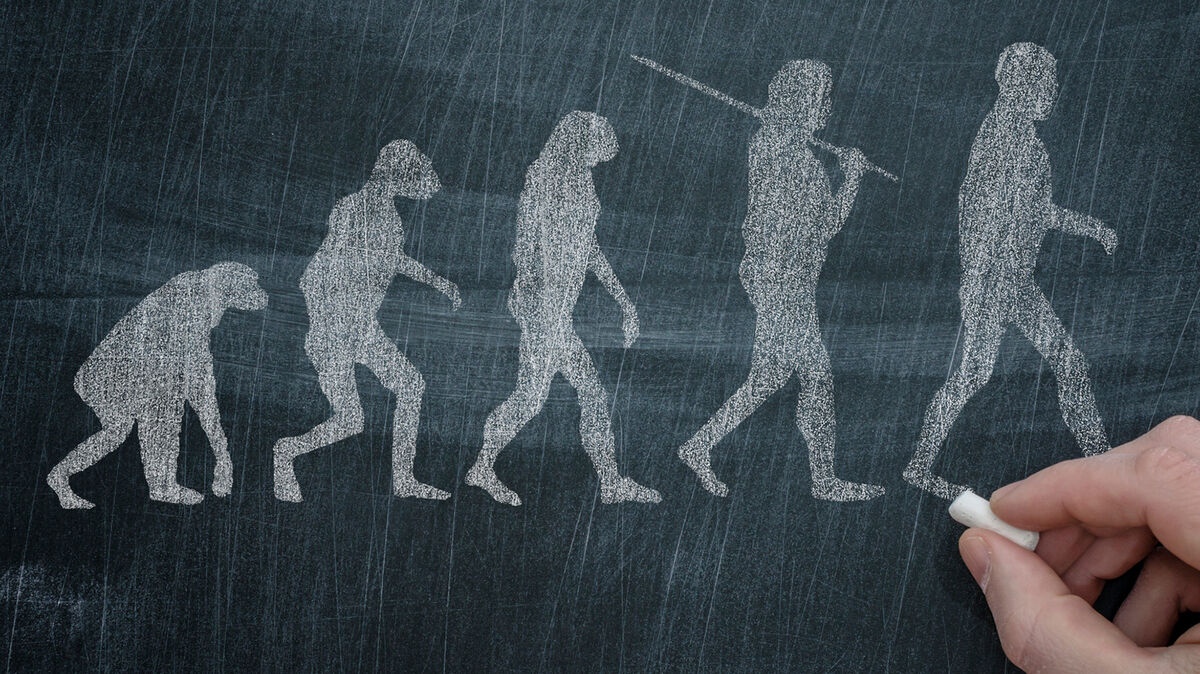
Goosebumps Are Supposed to Scare Enemies
Do you know why you get goosebumps from feeling cold or hearing something sentimental? Part of your brain thinks that you are still covered in thick hair. When animals are cold, the tiny muscles under their follicles contract into piloerections (goosebumps). This makes their hair or fur stand up and trap body warmth close to their skin. It also scares away predators or enemies by making the animal look bigger. Think about what your brain is trying to do the next time you get goosebumps from a creepy story!
Your Brain Crowded Out Your Wisdom Teeth
Early humans used to need wisdom teeth before they could cook and soften their foods. Now, we have less need for those way-back molars. As our brains grew, our jaws became smaller, leaving less room for wisdom teeth. Some people today don't even grow their wisdom teeth, but they're in the minority — 53% of people (particularly men) have at least one wisdom tooth grow in early adulthood.
You Have a Tail Before You're Born
Your early ancestors had a tail to help them balance — and before you were born, you did too! Around week five of a pregnancy, a fetus begins to develop a vestigial tail with 10 to 12 vertebrae. It doesn't last long, as most of these tails disappear before week eight. They become the coccyx of your spine, also known as your tailbone (now you know why!), and very rarely some babies are born with "true" vestigial tails.
Hiccups Protect Lungs From Gills That You Don't Have Anymore
Ever wonder why you get hiccups? These spasms of the diaphragm force you to suck in air, which makes a gulping sound in your voicebox. Hiccups don't serve a modern purpose, but 370 million ago, they were quite useful. Scientists believe that our very early ancestors had both gills and lungs, and when they sucked water in through their gills, it could aspirate into their lungs. A well-timed hiccup would dislodge the water and keep it from choking. We don't have gills anymore, but we still enjoy the occasional hiccup!
Your Appendix Isn't Entirely Useless
When you think of a body part that doesn't have a purpose in the modern human body, you probably think of the appendix. For the most part, that's true, as the appendix is best known for its ability to become infected and endanger the rest of the body if not removed. But a healthy appendix does serve an important purpose: it stores microbes and bacteria that are key for gut health. Doctors aren't sure whether this was the original purpose of the appendix or if it adapted to our 21st-century lives.
Other Fascinating Body Facts
Grossed out yet? Take a look at these last body facts that are disgusting and fascinating at the same time!
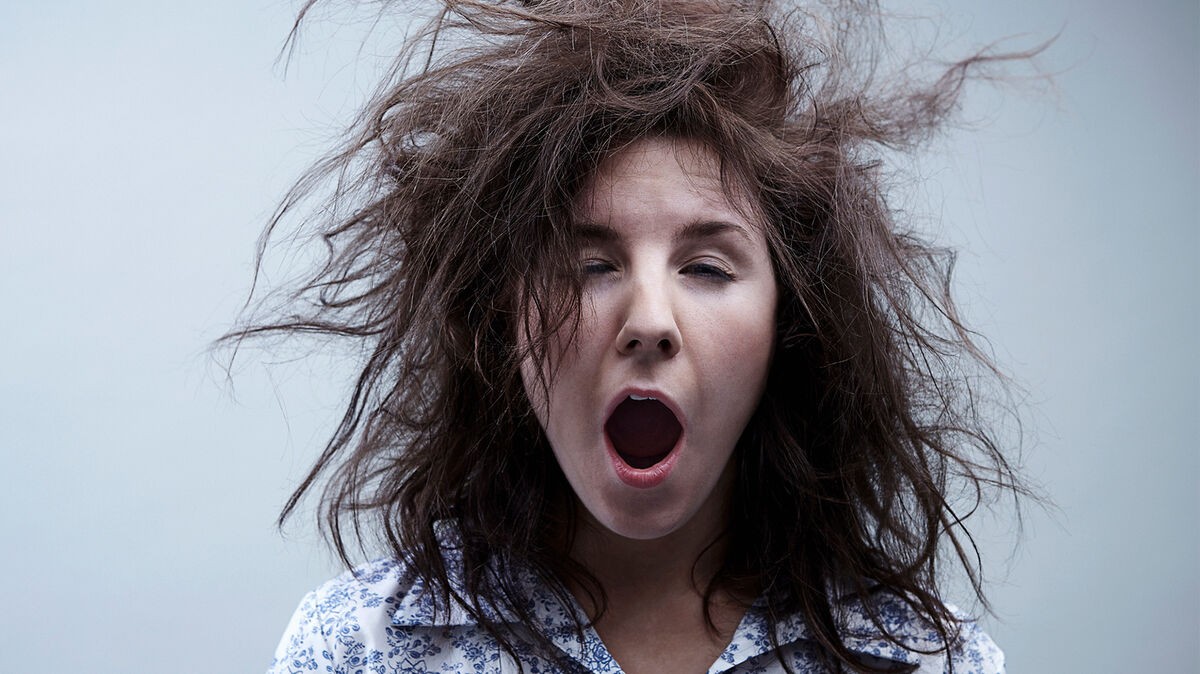
You Can Grow Toothy, Hairy Tumors
Like regular tumors, teratomas (Greek for "monstrous tumor") are abnormal growths of body tissue. But teratomas can include teeth, hair, bone, muscle, and sometimes even eyes! They're most often found in male and female reproductive organs or around the base of the spine. Some people believe that they're tiny twins, but they're actually just collections of germ cells that became confused during fetal development.
Kids Grow the Most During Spring
Does it seem like kids grow faster at the end of the school year? It's not just an illusion — children do tend to grow faster during the springtime. Some people believe that the sun's activity contributes to this growth, just as it contributes to the growth of the flowers in your May garden.
You Have Successfully Fought Cancer Hundreds of Times
Fighting cancer is often the most difficult thing a person can do in their life. But before that cancer diagnosis, your body fought off many other potential forms of cancer in its natural proofreading response. Every time your cells divide your DNA copies over. That's 30,000 genes that must duplicate, and one error could result in cancerous growth. But proofreading enzymes in your body search out these mistakes and eliminate them long before they endanger your health.
Your Cornea Gets Its Own Oxygen
Blood travels from your heart and through your blood vessels to every body part except one: your cornea. The cornea in your eye gets its oxygen through the air when your eyes are open, and it receives some oxygen from other parts of the eye when your eyes are closed. It's also the fastest healing part of your body.
Your Brain Eats Itself When You're Sleepy
Every night when you go to sleep, cells in your brain called microglial cells eat old cells that you don't need anymore. Brain cells called astrocytes clear out old and unnecessary synapses to refresh your neural wiring. But if you're sleep-deprived, your brain goes overboard with the clearing, and the microglial cells start to eat the astrocytes. A few nights of poor sleep won't kill you, but increased microglial activity over a lifetime has been linked to Alzheimer's disease. So get some sleep!
The Human Body Is Cool, Creepy and Complex
There are a lot of functions occurring in your body right now that keep you in that valuable state of homeostasis. While some of these functions and parts may be weird or uncomfortable, they're a vital part of keeping you alive. Learn more about the human body with a handy resource guide on the systems of the body.